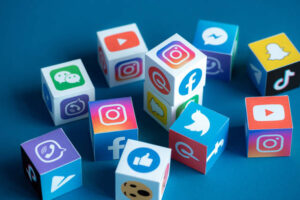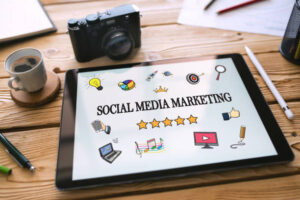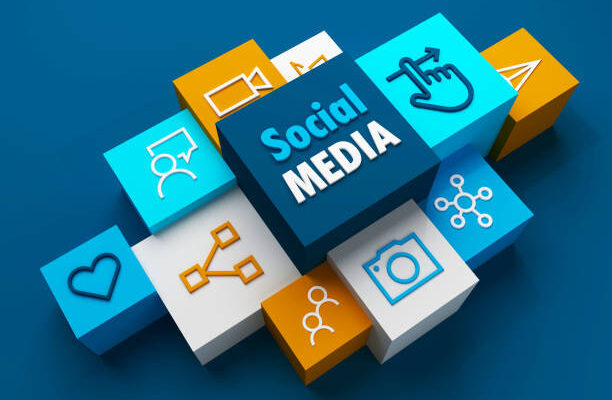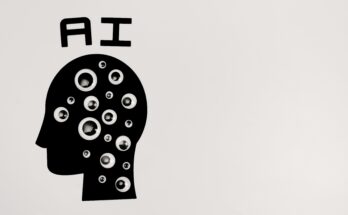Social media has become an inseparable part of our day to day lives because it shapes the way we maintain social relations with other people. It has evolved rapidly over the past few decades, influencing various aspects of society, from politics and business to personal relationships and self-expression. In this article, we’ll explore the history and evolution of social media, its impact on individuals and society and its potential future developments.
The Evolution of Social Media
 (Photo from iStock)
(Photo from iStock)
-
Early Beginnings
The concept of social media dates back to the early days of the internet. In the late 1960s and early 1970s, the development of ARPANET, the precursor to the internet, laid the foundation for online communication but these platforms were limited to text-based communication among researchers and academics.
-
Bulletin Board Systems (BBS)
The 1980s saw the emergence of Bulletin Board Systems (BBS), which allowed users to post messages, share files and interact with others in a more organized manner so BBS created the first online communities, setting the stage for the social networks we know today.
-
The Internet’s Explosion
 (Photo from iStock)
(Photo from iStock)
With the widespread availability of the internet in the 1990s so online communication became more accessible to the general public. Services like AOL Instant Messenger (AIM) and ICQ introduced the concept of real-time messaging, while platforms like GeoCities enabled users to create their own web pages.
-
The Birth of Social Networking
The 2000s witnessed the rise of true social networking platforms. Friendster, launched in 2002, is often credited as the first social media site but it faced scalability issues and eventually lost its popularity.
-
The Facebook Era
 (Photo from iStock)
(Photo from iStock)
In 2004, Mark Zuckerberg and his college roommates launched Facebook, which would change the social media landscape forever. Facebook allowed users to create detailed profiles, connect with friends and share photos and status updates. It quickly gained popularity because of college students and expanded to a global audience.
-
The Age of Microblogging
Microblogging platforms like Twitter, founded in 2006, introduced the concept of real-time, short-form communication. Users could share thoughts, news and updates in 140 characters or less. This format proved highly effective in spreading information quickly because it engages a large audience.
-
Visual Content Takes Center Stage
With the launch of Instagram in 2010, visual content became a dominant force in social media. Instagram allowed users to share photos and short videos, focusing on aesthetics and storytelling. This emphasis on visual content led to the rise of influencers and brand marketing through imagery.
-
The Snapchat Revolution
 (Photo from iStock)
(Photo from iStock)
Snapchat, founded in 2011, popularized ephemeral messaging. Users could send photos and videos that disappeared after a short time, creating a sense of urgency and privacy. This innovation challenged the idea of permanent online content.
-
Video Sharing Platforms
YouTube, founded in 2005, became the go-to platform for sharing and consuming video content. It created opportunities for creators to build massive audiences and monetize their videos. Platforms like TikTok (2016) and Vine (2013-2017) further expanded the influence of short-form video.
-
The Era of Messaging Apps
 (Photo from iStock)
(Photo from iStock)
Messaging apps like WhatsApp, WeChat, and Facebook Messenger have become essential communication tools. They offer features beyond simple text messaging, including voice and video calls, group chats, and even business services.
The Impact of Social Media
-
Personal Relationships
Social media has transformed how we maintain and nurture personal relationships. It enables us to stay connected with friends and family, regardless of geographical distance. However, it has also been associated with feelings of loneliness and the paradox of being “connected” yet isolated.
-
Communication
Social media has redefined communication. It allows for instant, global communication, making it easier to share news, opinions, and ideas. However, this accessibility has led to challenges such as misinformation, cyberbullying, and harassment.
-
Self-Presentation and Identity
Social media platforms offer users the opportunity to curate their online personas. This has led to questions about authenticity and the impact on self-esteem and mental health, as individuals may compare themselves to carefully curated representations of others.
-
Business and Marketing
 (Photo from iStock)
(Photo from iStock)
Social media has revolutionized marketing and advertising. Businesses leverage platforms like Facebook, Instagram and Twitter to reach a vast audience and engage with customers. Influencer marketing has also emerged as a powerful tool for brands to connect with their target demographics.
-
Political Influence
Social media plays a significant role in politics, enabling politicians to communicate directly with constituents and mobilize support. It has also been a platform for political activism and social movements, from the Arab Spring to the Black Lives Matter movement.
-
Privacy and Data Concerns
The collection and use of user data by social media companies have raised concerns about privacy and data security. Incidents like the Cambridge Analytica scandal have highlighted the potential misuse of personal information for political and commercial purposes.
-
Information Consumption
Social media is a primary source of news and information for many people but the spread of misinformation and echo chambers, where users are exposed to only like-minded views, are pressing challenges.
-
Mental Health
 (Photo from iStock)
(Photo from iStock)
The constant use of social media has been linked to mental health issues including anxiety, depression and addiction. The pressure to maintain a perfect online image and the fear of missing out (FOMO) contribute to these problems.
The Future of Social Media
Social media continues to evolve and its future holds several exciting possibilities and challenges.
-
Virtual and Augmented Reality
The integration of virtual reality (VR) and augmented reality (AR) into social media could revolutionize the way we connect. Imagine attending virtual parties, exploring digital worlds or meeting friends in immersive environments.
-
Privacy and Regulation
 (Photo from iStock)
(Photo from iStock)
As concerns about data privacy and misinformation grow, governments and regulatory bodies are likely to enact stricter regulations on all companies. This may impact how these platforms collect and use user data because it is actually effective.
-
Artificial Intelligence
AI-driven algorithms will continue to shape our social media experiences because they will determine the content we see, recommend connections and even create personalized content. The ethical implications of AI in social media will be a topic of ongoing debate so that we thrive for a better future.
-
New Platforms and Technologies
Innovation will give rise to new social media platforms and technologies we can’t even imagine today. These platforms may disrupt the dominance of current giants like Facebook and Twitter.
-
Mental Health Support
As awareness of mental health issues related to social media grows, platforms may implement features and tools to promote healthy usage. This provides support to users struggling with addiction or mental health challenges.
Conclusion
Social media has come a long way since its inception therefore fundamentally changing the way we communicate, connect and express ourselves. Its impact on society is undeniable, from the way we form relationships and consume information to its role in business, politics and personal identity.
Reference:
Tech Target
Want some amazing jewelry making ideas, that too at your home so what are you waiting for?, click on the link below:
Homemade Jewelry making for kids




